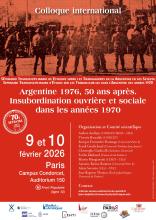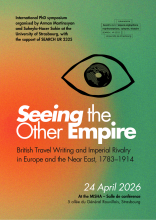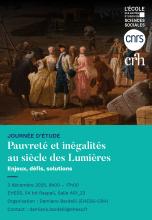Trauma, Institutional Knowledge, and Social Order: European Perspectives during the Cold War
CfP: “Homecomings” and Internal Migrations in the History and Present of Central and Southeastern Europe
CfP: Decolonisation and the Promises of Development, ca. 1950-1980
CfP Argentina 1976, 50 Years Later: Workers’ and Social Insubordination in the 1970s
Version française en pièce jointe - Adjunto versión en español
Argentina 1976, 50 Years Later: Workers’ and Social Insubordination in the 1970s
International Colloquium, Paris, Condorcet Campus, 9-10 February 2026
CfP: Seeing the Other Empire. British Travel Writing and Imperial Rivalry in Europe and the Near East, 1783–1914
This conference aims to interrogate some of these British visions of rival empires in narrations published between 1783 and 1914. It would be interesting to analyse the practice of imagined colonialism, that is, how the British travellers cast a domineering gaze upon their imperial rivals when travelling in lands that were not colonies of the British crown.
CfP: Violences coloniales, résistances et héritages en Afrique : perspectives et critiques (French)
Lomé/Togo
Le présent projet se propose d’abord d’être le creuset de réflexion sur l’impact des violences orchestrées par les administrations coloniales en Afrique et ensuite d’analyser les formes de protestations contre cet ordre colonial établi et leur survivance aujourd’hui. Plus spécifiquement, il a pour objectif de mesurer les formes d’expressions liant les violences et les résistances coloniales.



